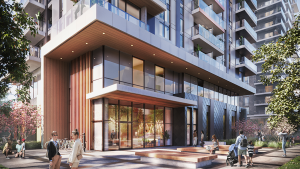VANCOUVER — Members of the former Canadian Architectural Licensing Authorities (CALA) have incorporated as a new not-for-profit group, the Regulatory Organizations of Architecture in Canada (ROAC) to better serve the public and the profession, the regulator announced recently.
As a unified body, ROAC, headquartered in Vancouver, includes the 11 provincial and territorial bodies responsible for regulating the practice of architecture. The regulators set qualifications and practice standards for entry into the profession, issuing registration and licences to those meeting them, indicates a release. ROAC will continue the former CALA’s work on a national level which includes the Examination for Architects in Canada and the Internship in Architecture Program, as well as serving as the conduit between the regulators and the Canadian Architectural Certification Board.
The body will continue developing nationally recognized standards and programs including improving professional mobility throughout Canada and internationally using tools such as Mutual Recognition Agreements to honour architectural credentials and qualifications and provide a path for obtaining registration across participating jurisdictions.
Under the new not-for-profit’s governance structure, each member organization appoints a director to represent their jurisdiction on the ROAC board of directors. The directors will meet regularly to oversee the organization’s activities, while member meetings with the broader regulatory bodies will happen at least annually.
Ian McDonald, Architect AIBC, AAA, OAA, has been named the group’s inaugural chair.
“Several principles established by the CALA Incorporation Task Force were important for us to preserve,” said McDonald in a statement. “These include flexibility and efficiency, equality of voice, autonomy and decision-making, architectural voice, preserving working structure, and funding and administrative support. The principles were designed to ensure what was working well with CALA remains true in ROAC.”











Recent Comments
comments for this post are closed